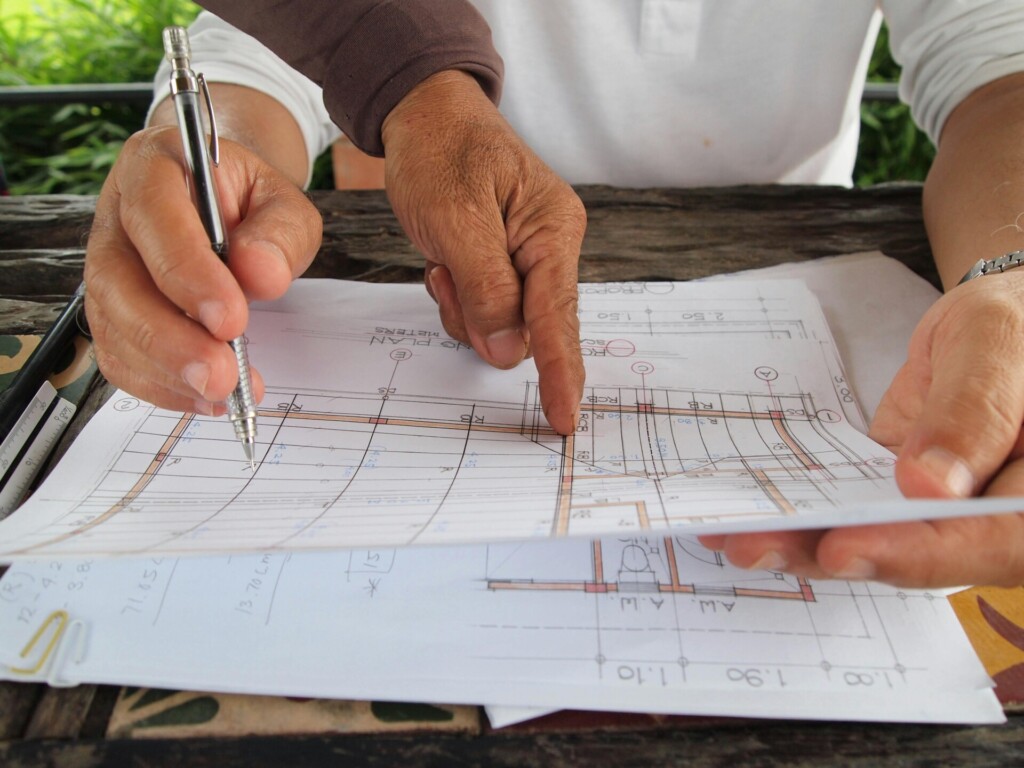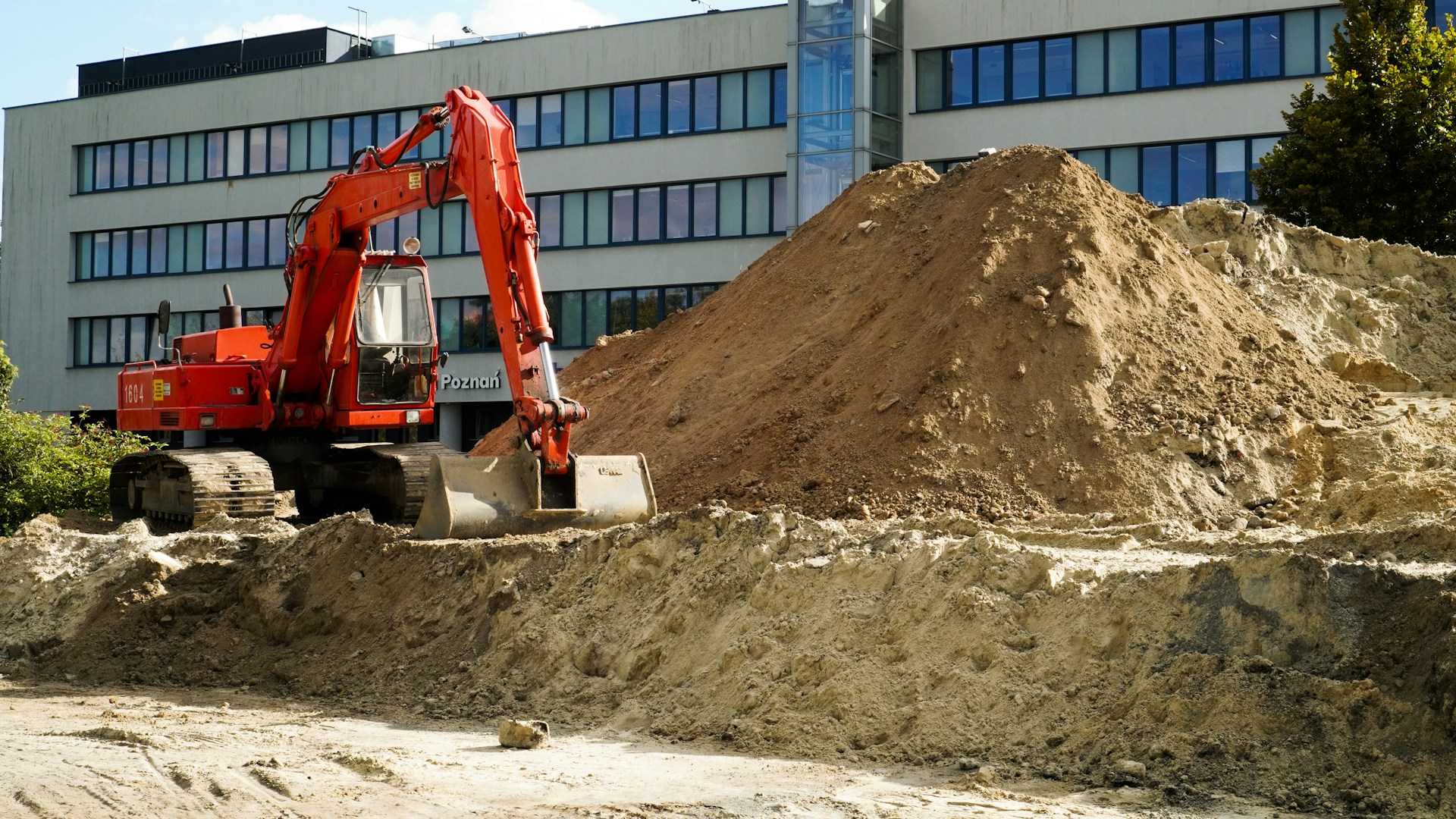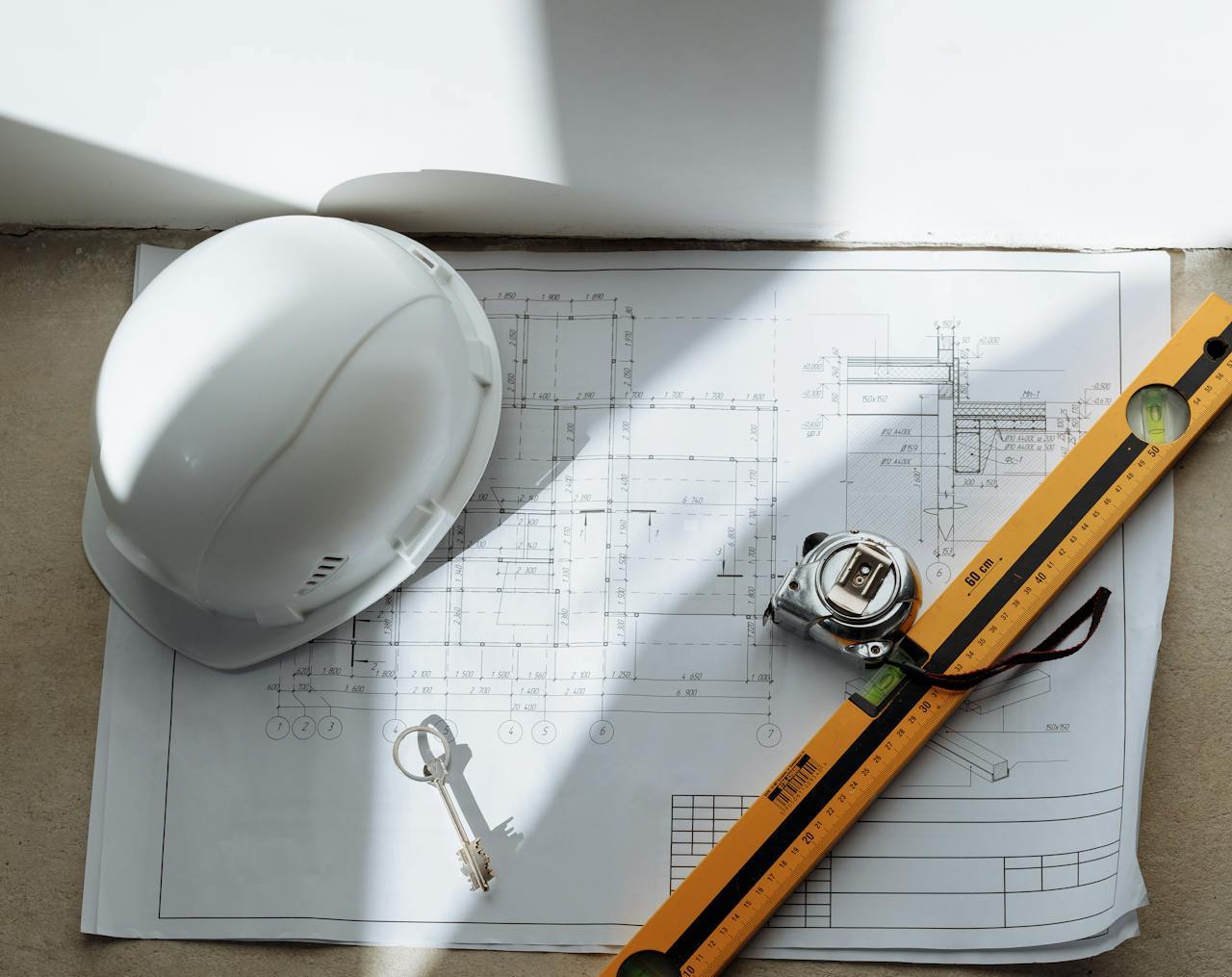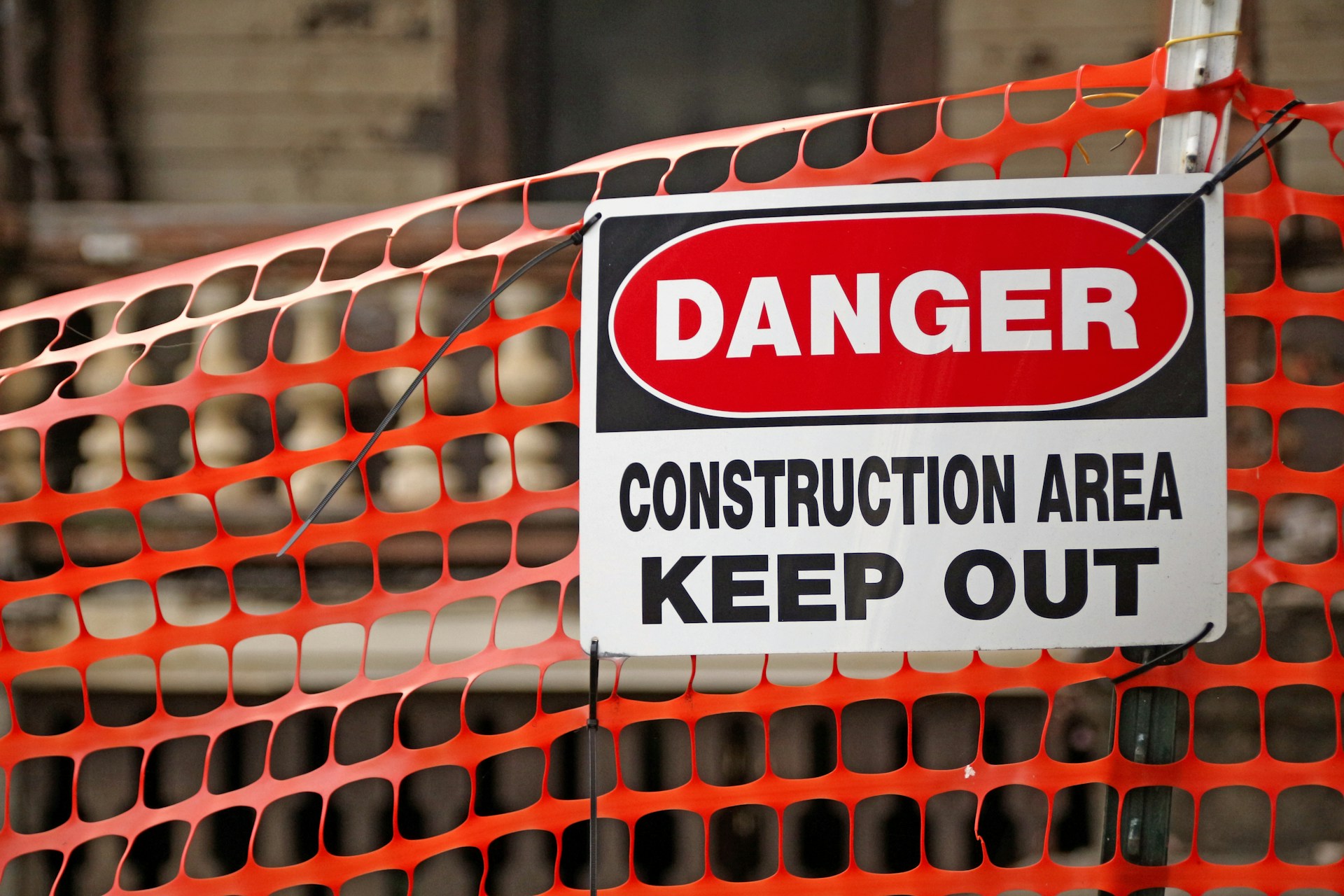Nearly 55% of construction sales come from referrals, highlighting how critical project success becomes for long-term business relationships. A construction firm brings comprehensive expertise from initial planning through final handover, managing everything from permits and subcontractors to budgets and quality control.
We coordinate the full spectrum of services that transform concepts into completed buildings. Our role spans general contracting, design-build partnerships, and construction management, with many firms extending into specialty trades and post-construction support to ensure seamless project delivery.
Which Delivery Models And Roles Can A Firm Provide?

Construction firms organize projects through distinct delivery models, each defining how we manage relationships between design, construction, and ownership responsibilities. The model selection shapes project timeline, risk distribution, and communication flows from concept through completion.
General Contracting
We manage the complete build process under general contracting arrangements. This includes hiring and coordinating all subcontractors, maintaining project schedules, and carrying financial risk for the agreed budget. General contractors assume responsibility for delivering the project within the established cost framework while coordinating multiple trades and specialty contractors.
The general contracting model separates design and construction phases, with the owner typically contracting separately for architectural services. We step in after design completion to execute the build according to specifications and drawings. This approach provides owners with competitive bidding opportunities and clearly defined contractor responsibilities.
Design-Build
Design-build creates a single point of accountability by combining design and construction under one contract. We manage both architectural development and construction execution, eliminating the traditional separation between these phases. This integration enables streamlined changes during the build process since design and construction teams work collaboratively from project initiation.
The design-build model accelerates project delivery through overlapping design and construction activities. We can begin site preparation and foundation work while finalizing interior design details, reducing overall project duration. This approach also minimizes change orders since our construction team provides input during the design phase.
Construction Management
As construction managers, we act as the owner’s representative throughout the project lifecycle. We can oversee either multi-prime contracts where the owner contracts directly with major trades, or manage a general contractor relationship. This model focuses on professional services rather than assuming construction risk directly.
Construction management provides owners with enhanced oversight and cost control. We offer pre-construction services including cost estimating, scheduling, and value engineering. During construction, we coordinate trades, monitor quality, and ensure adherence to project schedules while representing the owner’s interests in all contractor relationships.
Turnkey Projects
Turnkey projects involve complete project delivery from initial concept through final occupancy. We handle all aspects including design, permitting, construction, and commissioning to deliver ready-to-use space. The owner receives a fully operational facility without managing individual project components or contractor relationships.
This comprehensive approach works particularly well for specialized facilities or owners seeking minimal project involvement. We coordinate all professional services, obtain necessary permits, manage construction, and handle final inspections before transferring a completed facility. The turnkey model provides predictable outcomes and single-source accountability for project success.
Takeover Services
Takeover services address projects that have encountered difficulties with previous contractors or delivery teams. We step in to assess existing conditions, resolve outstanding issues, and implement recovery strategies to get projects back on track. This specialized service requires experience in problem diagnosis and rapid project mobilization.
Our takeover approach begins with comprehensive project evaluation including reviewing existing contracts, assessing completed work quality, and identifying schedule impacts. We then develop recovery plans that address immediate challenges while establishing sustainable project momentum toward completion.
Self-Perform Work
Self-perform capabilities allow us to directly execute selected construction scopes with our own workforce rather than subcontracting all trades. We typically self-perform critical path activities or specialized work where direct control improves reliability and schedule performance. Common self-perform scopes include sitework, concrete, steel erection, or mechanical systems.
Direct execution of key scopes provides enhanced quality control and schedule reliability. We can respond immediately to field conditions or design changes without coordinating through subcontractor relationships. Self-perform work also creates cost transparency and eliminates subcontractor markup on critical project elements.
What Services Span Pre-Construction Through Closeout?
Construction projects follow a structured timeline that begins long before the first shovel hits dirt and continues well after the final inspection. We coordinate services across six key phases, each requiring specialized knowledge and careful documentation to maintain compliance with local codes and deliver projects on schedule.
Pre-Construction Planning And Coordination
Pre-construction services form the foundation of every successful build. We handle initial planning, budgeting, and feasibility studies that determine whether a project moves forward. This phase includes securing permits and zoning approvals, which often require coordination with local authorities and multiple stakeholders.
During pre-construction, we conduct thorough site assessments and establish project timelines. The permitting process alone can take weeks or months, depending on project complexity and local requirements. We manage these timelines to prevent delays that could impact the overall construction schedule.
Site Development And Preparation
Once permits are secured, site development begins with mobilization activities. We coordinate surveying teams to establish precise boundaries and elevation points. Site clearing removes existing vegetation and structures, followed by grading to achieve proper drainage and foundation levels.
Utility work represents a critical component of site development. We coordinate connections for water, sewer, electrical, and gas services. This work must align with utility company schedules and often requires separate permits for each service connection.
Site Improvements And Infrastructure
Site improvements extend beyond basic preparation to include permanent infrastructure elements. We install underground utilities, drainage systems, and retention ponds to manage stormwater runoff. These systems must meet environmental regulations and local building codes.
Additional improvements include parking areas, lighting systems, and landscaping that complement the main structure. Documentation for these improvements requires coordination with land-use planners and ongoing compliance monitoring throughout construction.
Renovation And Interior Fit-Outs
Renovation projects present unique challenges when working in active or existing structures. We coordinate work schedules to minimize disruption to ongoing operations while maintaining safety standards. This requires careful planning and phased construction approaches.
Interior fit-outs for tenants demand precise coordination between mechanical, electrical, and architectural trades. We manage these complex installations to ensure all systems integrate properly and meet tenant-specific requirements while maintaining building code compliance.
| Phase | Key Requirements |
| Pre-Construction | Initial planning, budgeting, feasibility studies, securing permits, zoning approvals. |
| Site Development | Mobilization, surveying, site clearing, grading, utility connections. |
| Site Improvements | Infrastructure installation, stormwater management, parking, lighting, landscaping. |
| Renovation & Interior Fit-Outs | Work schedule coordination, safety standards, systems integration. |
| Sustainable Design | Energy-efficient systems, sustainable materials, documentation for green certifications. |
| Project Closeout | Final inspections, punch list, documentation and warranties, handover processes. |
Sustainable Design Integration
Many construction firms now offer in-house sustainability expertise to help owners reduce long-term operational costs. We evaluate energy-efficient systems, sustainable materials, and green building certification requirements during the design phase.
Sustainable design elements require additional documentation and quality checks throughout construction. We coordinate with specialized consultants and maintain detailed records for certification programs like LEED or Energy Star compliance.
Project Closeout And Handover
The closeout phase begins with final inspections conducted by local authorities and our quality control teams. We coordinate walk-throughs with owners to identify any remaining punch list items and ensure all systems operate as designed.
Documentation and warranties form a critical component of project handover. We compile operation manuals, warranty information, and as-built drawings into comprehensive closeout packages. This documentation supports future maintenance and provides legal protection for both owners and contractors.
Some construction firms extend services beyond handover into facilities management. We can handle warranty administration, maintenance ticket tracking, and ongoing support to ensure building systems continue operating efficiently after occupancy.
Which Specialty Scopes Can Be Coordinated Or Self-Performed?

Construction firms manage multiple specialty trades through coordination with subcontractors or direct self-performance. We organize these scopes into distinct categories based on their function within the project.
The scope categories span structural work, building systems, interior finishes, support services, and specialized sector requirements. Each category requires specific expertise and coordination timing throughout the construction process.
Earthwork And Structure
Demolition contractors handle existing structure removal and site clearing. This includes selective interior demolition, full building teardown, and debris removal coordination.
Excavation teams manage earthmoving, grading, and foundation preparation. We coordinate equipment scheduling and soil handling to maintain project timelines.
Masonry specialists install concrete units, brick, stone, and block work. Their expertise covers both structural and decorative applications across building exteriors and interiors.
Roofing contractors provide weatherproofing through various membrane, shingle, and metal systems. We coordinate their work with structural completion and mechanical system installations.
Building Systems
Electrical contractors install power distribution, lighting, and low-voltage systems. We coordinate their rough-in work with framing and their finish work with interior completion.
Plumbing specialists handle water supply, drainage, and gas systems. Their coordination requires careful sequencing with concrete pours and wall framing.
HVAC contractors manage heating, cooling, and ventilation systems. We coordinate their ductwork installation with electrical and plumbing rough-ins to prevent conflicts.
Security and locksmith services cover access control, surveillance systems, and hardware installation. These trades often coordinate with electrical contractors for power and data connections.
Finishes And Millwork
Flooring contractors install carpet, tile, hardwood, and specialty surfaces. We schedule their work after mechanical systems are complete and tested.
Painting contractors provide surface preparation and coating applications. Their timing coordinates with drywall completion and before final fixture installation.
Cabinet and countertop specialists handle kitchen and bathroom installations. We coordinate their template measurements during construction and final installation near project completion.
Support And Supply Services
Material suppliers coordinate delivery scheduling and inventory management. We work with them to ensure materials arrive when trades need them without excessive staging.
Equipment rental coordination manages specialized tools and machinery. This includes scheduling delivery, pickup, and maintenance to prevent work delays.
Sector-Specific Fit-Outs
Retail fit-outs require coordination of display fixtures, point-of-sale systems, and specialized lighting. We manage these installations around operational requirements.
Hospitality projects involve kitchen equipment, furniture installation, and specialized finishes. Timing coordination ensures guest areas remain undisturbed during final phases.
Educational facility fit-outs include classroom technology, laboratory equipment, and specialized furniture. We coordinate these installations with operational schedules and safety requirements.
Workplace fit-outs manage furniture systems, technology infrastructure, and specialized equipment installation. We sequence this work to allow phased occupancy when needed.
Healthcare projects require medical equipment coordination, specialized finishes, and infection control measures. These installations demand precise scheduling and cleanliness protocols.
Laboratory fit-outs involve specialized equipment, ventilation systems, and safety infrastructure. We coordinate these complex installations with extensive testing and commissioning requirements.
What Advantages Do Owners Gain By Hiring A General Contractor?
Property developers and owners who engage us as their general contractor gain access to established vendor connections and subcontractor networks. We maintain long-standing relationships with skilled trades and material suppliers across multiple specialties. These connections often translate to better availability during peak construction seasons and competitive pricing through bulk purchasing agreements.
Our vendor connections extend beyond simple cost savings. We work with electricians, plumbers, masons, and specialty contractors who understand our quality standards and project timelines. This network enables us to source materials efficiently and coordinate deliveries to prevent delays on active job sites.
Flexible Planning Throughout Construction
We support design tweaks and scope adjustments during construction, particularly under design-build arrangements. Property owners frequently request modifications as their project takes shape or market conditions change. Our experience with flexible planning allows us to evaluate change requests quickly and implement approved modifications without derailing the overall schedule.
This adaptability proves valuable when owners need to accommodate tenant requirements, building code updates, or unexpected site conditions. We coordinate with architects and engineers to assess the impact of changes on both timeline and budget before moving forward.
Compliance Through Proper Licensing And Insurance
We handle licensing and insurance requirements that ensure building codes compliance and reduced liability for property owners. Our team maintains current licenses across the jurisdictions where we operate, and we carry comprehensive general liability and workers’ compensation coverage. This coverage protects owners from potential claims related to construction activities.
Building codes compliance represents a significant advantage for owners who lack construction expertise. We navigate permit requirements, inspection schedules, and code interpretations that can delay projects when handled incorrectly. Our licensing demonstrates competency in construction standards and regulatory requirements.
Experience And Oversight For Quality Control
Our project oversight includes navigation of construction delays, coordinating inspections, and maintaining quality control across all trades. We identify potential issues before they impact project timelines and work with subcontractors to resolve problems quickly. This experience helps us anticipate common construction challenges and implement preventive measures.
Quality control extends throughout every phase of construction. We conduct regular site inspections, review work against specifications, and ensure that each trade completes their scope according to project standards. This systematic oversight reduces the likelihood of costly rework or warranty claims.
Single Point Of Contact For Streamlined Communication
Property owners benefit from simplified communication through our role as a single point of contact. Rather than managing multiple contracts with individual trades, owners communicate directly with our project management team for updates, decisions, and issue resolution. This structure eliminates confusion about responsibilities and speeds up decision-making processes.
We coordinate between subcontractors, architects, and building officials on behalf of property owners. This coordination includes scheduling conflicts, material deliveries, and regulatory inspections. Our centralized communication approach keeps all parties informed while reducing the administrative burden on owners.
Value Engineering And Cost Transparency
We provide transparent cost estimates and value engineering solutions that can lower operational costs for completed buildings. Our estimating process breaks down material, labor, and equipment costs clearly, giving owners visibility into where their budget is allocated. Value engineering identifies opportunities to achieve the same functional outcomes through more cost-effective methods or materials.
Energy-efficient design options often emerge through our value engineering process. We evaluate HVAC systems, insulation methods, and window specifications that reduce long-term operational expenses. These recommendations balance upfront construction costs against future utility savings and building performance.
Regular Progress Updates And Risk Communication
We maintain regular communication with property owners regarding project timelines and emerging risks. Our progress updates include completed milestones, upcoming activities, and any factors that could impact the schedule or budget. This communication allows owners to make informed decisions about their project and plan for occupancy or tenant improvements.
Risk navigation includes weather delays, supply chain disruptions, and unexpected site conditions. We assess these risks continuously and develop contingency plans to minimize their impact on project delivery. Early communication about potential risks gives owners time to adjust their plans or authorize alternative approaches.
| Benefit Category | Description |
| Vendor Connections | Access to established vendor connections and subcontractor networks, often translating to better availability and competitive pricing. |
| Flexible Planning | Support for design tweaks and scope adjustments during construction, with quick evaluation of change requests. |
| Compliance and Insurance | Management of licensing and insurance to ensure compliance and reduce liability for property owners. |
| Quality Control | Experience and oversight in maintaining quality control across all trades, ensuring work meets project standards. |
| Communication | Single point of contact for streamlined communication, simplifying owner interactions with trades and project management. |
| Cost Transparency | Provision of transparent cost estimates and value engineering to lower operational costs. |
| Progress Updates | Regular communication about project timelines and risks, aiding informed owner decisions. |
Conclusion And Next Steps

A construction firm delivers comprehensive project delivery models, lifecycle services, and specialty trade coordination to keep projects compliant, safe, and on schedule. From pre-construction planning through final handover, we manage the full scope of work while maintaining clear communication and accountability throughout the process.
To move forward with your construction project, confirm the right delivery model for your needs, whether general contracting, design-build, or construction management. Define your pre-construction requirements including permits and site preparation. Map out site development and interior fit-out scopes while verifying our licensing, insurance coverage, and project reporting schedule. Finally, clarify closeout procedures including final inspections, warranty documentation, and post-construction support to ensure a seamless project handover.
Ready to discuss your construction project requirements? Contact EB3 Construction today to explore how we can deliver your next project on time and within budget.




